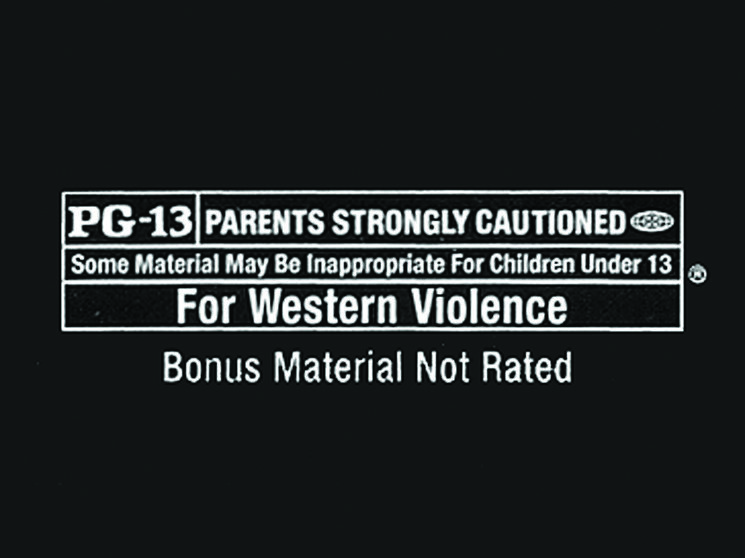Archive
Jamie Wentz and Kurt Mueller Round Up
Artist Statement
“ROUND UP: This term for the gathering of cattle is now used by the police-as inCasablanca (1942), in which Claude Rains’s French police chief orders his men to ’round up the usual suspects'” Paul Simpson, The Rough Guide to Westerns”
“Reciprocity characterizes the functional relationship between cultural constructions and ‘material’ experience…our myth/ideological systems shape our apprehension and provide the terms for our response to reality and in the event–in the process of actual use – are themselves transformed.” Richard Slotkin, Gunfighter Nation
“Round Up is a three-part installation that attempts to muster the relationship between the myth of the American West and the United States’ recent geopolitical posturing. Through popular media manipulations, green-screen technology, and audience role-playing, the force of the gun-slinging Cowboy identity is put to task. Fact, fiction, history, and possibility square off in an interactive showdown of Texan proportions.
Setting (“for Western Violence”)assembles fifty-some Western movie posters and DVD covers into an immense grid. The text, or “talk,” from each image has been carefully excised; the stories, or “action,” of its icons further left to memory and imagination.
In front of this pixilated setting sun, glows Green Zone, a tent sewn from Chroma key fabric. Originally encamped at McKinney Falls State Park, the enclosure functions as an impromptu movie studio, complete with dressing room, lighting, and performance stage.Inside, the artists ask viewer-participants* to dress “as a citizen of a Western town” and then enact a scene called “the Round Up,” in which each audience-actor improvises a response to a posse-gathering, quotation-laden speech delivered by ‘the new sheriff.’
The resulting footage, edited with special effects, is screened outside asRound Up.Modeled on the typical town meeting scenes of Westerns (High Noon,The MagnificentSeven), the video’s opening dialogue quickly spirals into a farcical interrogation of the clichés, constructions, and complaints of frontier-styled justice.”


